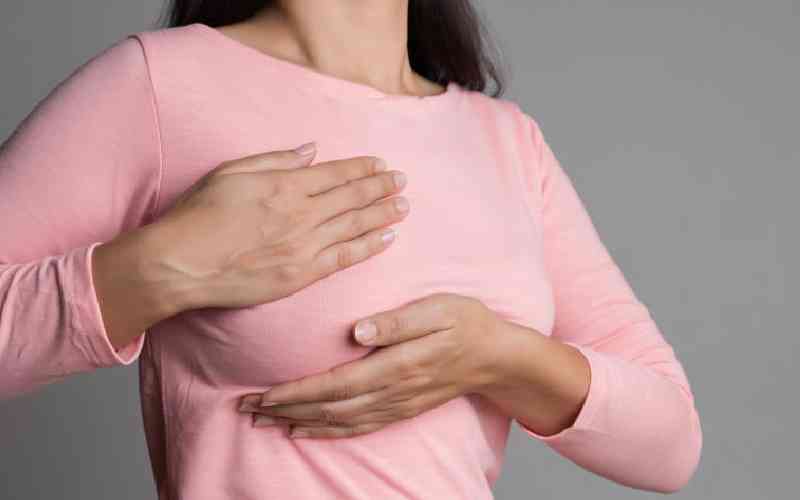
Dear Dr Ombeva,
This coronavirus situation has me worried and scared. It is so hard fighting an enemy you cannot see. Each day I leave home I am scared, not so much for me, but for my three young kids – Jayden, Allen and Ethan. Is it true that children have an immunity that protects them from coronavirus? Tell me that is true? What can I do to protect them? Would immune boosters help?
Mama Jayden
Response
The COVID-19 (or coronavirus disease 2019) is a new type of coronavirus not previously identified. The WHO assigned ithe COVID-19 name officially on February 11, 2020 to the coronavirus disease of 2019.
Remember there are many types of human coronaviruses that affect both humans and animals. COVID -19 was first detected in Wuhan City, Hubei Province, China, with those infections being linked to a live animal market, but now spreads from person-to-person.
Community spread means infected people begin spreading it even when they don’t know how they were infected. To the best of our current knowledge, children generally do not appear to be at higher risk for COVID -19 infection or even deaths when compared to adults who make up the vast majority of cases worldwide.
Children may be exposed to COVID -19 infection when the virus contacts their nose, eyes, the mouth or lungs. Please note the symptoms of COVID -19 in children are similar to those among adults. Children may experience mild signs and symptoms including cold or flu-like symptoms (fever, a runny nose or cough), and sometimes diarrhoea and vomiting.
Severe disease is rare in children, unless is they have an underlying medical condition or special healthcare needs. It has, however, been thought that though they may not show severe disease, asymptomatic infected children could be silently spreading the virus in the community.

It is therefore your role as a parent or caretaker to encourage and empower your child to help stop the spread of this virus by teaching them to: wash hands regularly using soap and water or alcohol-based hand sanitiser; to avoid sick people (even favourite relatives) who are coughing and sneezing and have a high temperature; to clean and disinfect all high-touch surfaces each day in the household common use areas including tables, chairs, doorknobs, light switches, remotes, handles, toys, desks, toilets, sinks; teach them to launder items including washable play/plush toys as specified.
If possible, launder these items using the warmest appropriate water; and make sure that dirty laundry from any ill family member should NOT be washed with other household member’s items.
One thing to remember is that a healthy child does not need to wear a facemask, and masks should be reserved for sick people or those providing care the sick. In one of the most recent largest study that looked at 2,143 children with suspected or confirmed COVID-19 seen at the Chinese Center for Disease Control and Prevention between January 16 and February 8, over 90 per cent of the children showed no symptoms at all or had very mild symptoms like muscle aches, fever, sore throat, fatigue, cough, runny nose, or sneezing. These children went on to make full recovery without any complications.
Note, however, all children, regardless of their age, were susceptible of contracting the virus. There was only one death among these children under the study.
Children can spread the virus to their elderly grandparents, especially the more vulnerable over-70-year olds, who easily develop serious complications, just like it occurs in people with suppressed immunity like HIV positive people, or those with cancer, heart disease, lung disease, pregnant mothers and those with diabetes. The children should, therefore, be educated and empower to support control of spread of Covid-19 to these vulnerable adults.
Teach children self-protection, and ensure every one practises social distancing and avoid any close contact or kissing or hugging or shaking hands with others, even those you believe that are well. Children should be helped to understand that this separation is for a short time but serves a greater good, and that, very soon, once we have overcome this virus, everything will go back to normal.
Dr Ombeva Malande is a specialistpaediatrician. Reach him on [email protected]
What ‘old person’ things do you do? The Standard Group Plc is a multi-media organization with investments in media
platforms spanning newspaper print
operations, television, radio broadcasting, digital and online services. The
Standard Group is recognized as a
leading multi-media house in Kenya with a key influence in matters of national
and international interest.
The Standard Group Plc is a multi-media organization with investments in media
platforms spanning newspaper print
operations, television, radio broadcasting, digital and online services. The
Standard Group is recognized as a
leading multi-media house in Kenya with a key influence in matters of national
and international interest.










